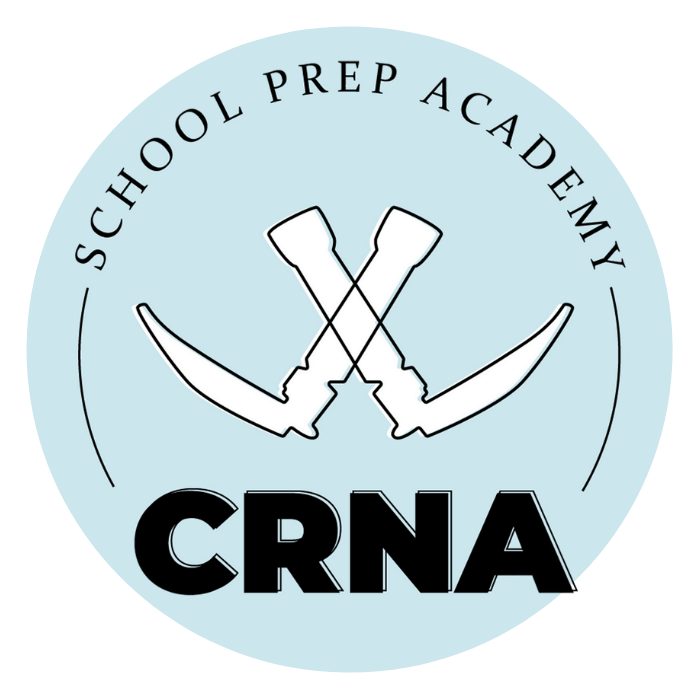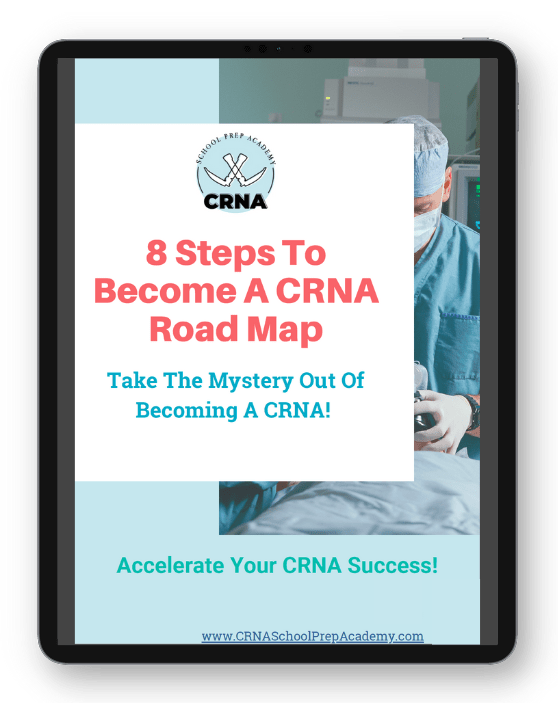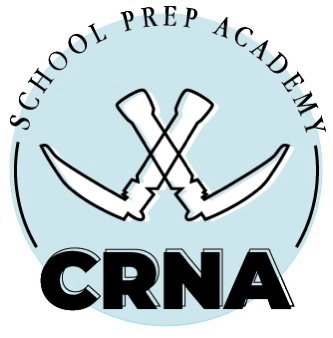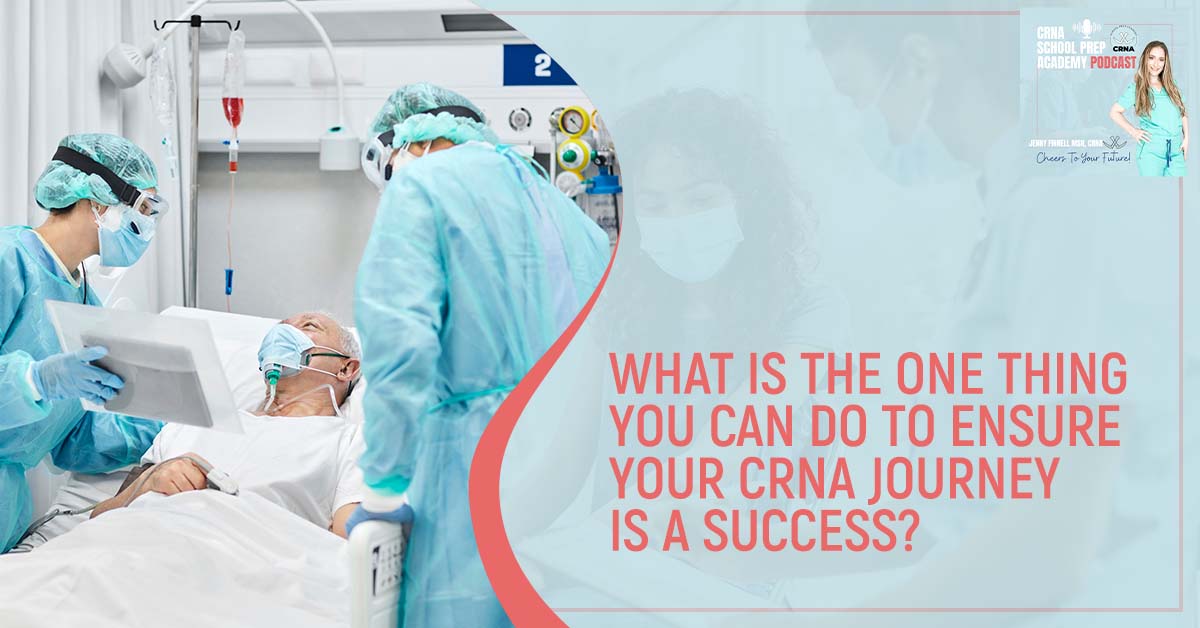
The road to being a CRNA is never smooth. But with the right preparation, you can make the journey worth it. In this episode, Jenny Finnell equips you with the information that can ensure your journey to becoming a CRNA is a success. All it takes is just one thing: discipline. There is nothing quite like having the attitude to commit to your path toward becoming a CRNA. What does being disciplined mean? What does it entail? How do you bring that to your journey? Tune in to learn the answers to these questions and more. Learn about why this key thing can set you apart either to make you or break you.
Get access to planning tools, mock interviews, valuable CRNA Faculty guidance, and mapped-out courses that have been proven to accelerate your CRNA success! Become a member of CRNA School Prep Academy here!
https://www.crnaschoolprepacademy.com/join
Book a mock interview, personal statement critique, resume review and more at https://www.TeachRN.com
Join the CSPA email list here! https://www.cspaedu.com/podcast-email
Send Jenny an email or make a podcast request!
Hello@CRNASchoolPrepAcademy.com
—
Watch the episode here
Listen to the podcast here
What Is The One Thing You Can Do To Ensure Your Journey To Becoming A CRNA Is A Success?
What is the one thing that you can do that will set you up for success on your CRNA journey? That’s what we’re going to discuss in this episode- how you can ensure success in becoming a CRNA. Let’s go ahead and get into the show. For those of you who are new, welcome. In this episode, we’re going to discuss the one thing that you can do that will ensure your success as you pursue becoming a CRNA. I was asked this question when we were at NTI, which is the National Teaching Institute through the AACN. I highly encourage you to go. Next year it’s in Denver. We will be there. It was a wonderful time recently in Philadelphia; it’s awesome to see a lot of CRNA programs there and see all of you. The AANA was there.
Honestly, every time I go, I’m always incredibly humble and grateful. For those of you asking for my autograph, it makes me blush and I giggle about it still because I’m like, “My autograph?” It was awesome nonetheless and I appreciate you. Thank you for stopping by if you were there, saying hi and taking pictures. I am honestly honored to be that person for you in your life. I’m grateful that you are in our world and you’re out pursuing CRNA.
We had a student come by and he asked me some of these questions. One of the questions was, “If you could give me any one thing that would set me apart that would make or break my journey, what would that be?” It was fun to be put on the spot and think, “What would that be?” It came very quickly and easily. I wanted to bring a whole episode on it, discuss why that is, how you can see that for your journey and what that looks like for you. The answer to what’s that one thing and that one skill set that you should have in your pursuit of CRNA is discipline. That can mean a lot of different things to a lot of different people.
It should be because it’s not any one form of discipline that fits one person. You have to understand where that fits into your life and in your pursuit of CRNA. That could be disciplined to go back and take some courses that you don’t want to take but you know they’re getting to be ten years old and doing those types of things. It could be getting 40 hours of shadowing. When you already have one, you have enough to apply. Go forward and do more to make sure that you’re getting a well-rounded experience so that you have a better understanding of what it’s like to be a CRNA.
What Is Discipline
If you think about it- what is discipline? Discipline is doing something that you do not want to do. It’s doing something that you have to do for yourself or others. It’s showing up day after day, even when there’s no reward there for you but putting in the work and effort because you know over a period of time, the results will come but they’re not going to be instant results. No instant gratification. I’m guilty of seeking these types of things out. We all are. We live in a society that honors instant gratification. A lot of things are geared toward giving you that instant win.
CRNA is not one of those things. I’m sorry. Ask any current student. They will tell you that this takes a lot of discipline. It takes three years to get through this grueling program with no promise of graduating and being successful. I’ve had a lot of students say, “I could do all this stuff, Jenny. I could not even get into school. Just because I go back and do all these courses, shadowing and things like to change ICUs doesn’t mean I’m going to get in.” You’re right. It doesn’t mean you’re going to get in.
How do you face that when you’re like, “How can I take on all these additional risks with my time, money and sanity when there’s no promise of getting the result that you are out to achieve?” It comes down to, “That’s discipline.” Discipline is doing something, not ever knowing if the reward is ever going to be there but doing it because you believe in it. You want it so bad that it doesn’t matter whether you succeed or fail. You will just do it because it’s what you want to do.
That is what I want to spark within you. That discipline to not worry about the outcome. Look at this as the process and journey of developing into a CRNA. It’s going to have some ups and downs. There are no promises ahead. Believing in yourself and knowing that you will stick it out day after day to do the things that you know it will take to get there is all that matters at the end of the day. Sticking to the course and doing the things that you don’t want to do, feel hard to do or feel very uncomfortable to do.
Types Of Discipline
Talking to the program director or connecting with them. Sometimes that’s scary. Sometimes it feels awkward. You’re like, “What do I say? What do I ask? Maybe I won’t even do it.” You could be missing a huge opportunity to gather some insight on how you can help yourself down the road. Discipline can come into forms of different types. It could even be your accountability and things of that nature. If I had to pick any one trait, that’s what it would be.
It’s going to set you apart because it’s going to show not just in your interview but also in your application. The person who reviewed their essay and personal statement 20-plus times and had multiple people look at it will 100% seem more polished than someone who only spent 2 or 3 revisions doing it, submitted it and never had a single person lay an eye on it.
The reality is those who are willing to go and do extra things that are difficult and take more time and effort, it’s going to show that you’re more disciplined and determined to make the desire that you want. I always stress all the time, “Don’t wait until the last minute to study.” Everyone focuses all their eggs on the application and getting the GRE, CCRN, ICU experience, all the shadowing and all the things because it’s a lot less to do. They submit their application and then start preparing for the interview.
If you’ve gone to that point, you could have been preparing that entire time. Not in large giant chunks but you could have been deliberately preparing for your interview throughout the entire time you’re in the ICU. You could have made a deliberate effort to study a little bit on little drugs, topics, diseases and processes. Keep a binder. It could only take 10 to 15 minutes a day. Those 10 to 15 minutes a day over a period of 1 or 2 years build an understanding and a foundation that’s going to serve you so well as you walk into the interview process.
I’m hearing more that the schools that are still drilling on the clinical pathophysiology process are getting harder and harder. What I mean by that is they don’t care about the mechanisms of action anymore. They want to know down to the molecular level, like the G proteins and all of that. They want to know way deeper than surface level than what you can go find on Google or in the standard textbook. A nursing textbook is probably not going to cut it. You probably have to get an anesthesia textbook of some kind.
I had a critical care drug book that was used for anesthesiology. It was more than pharmacology for Nursing 101. It’s a much more in-depth book. Get more advanced books to do your studying and things of that nature. These schools know and recognize that there’s a lot to be found on the internet but they want to test to see how far can the student take it. How much do they understand? Is it more than what they can Google on the internet before they come into the interview?
Typically, it’s harder to find things down to the molecular level on certain pharmacology because most standard people who read things on Google are not looking for that because it’s way far over their heads. They’re looking to see if you have taken the time to find those things out. I encourage you not to wait until a month or weeks before you’re interviewed to start understanding these concepts.
You’re working in the ICU and getting a drip that is right then and there when you start that process of looking it up. If you can’t find what you’re looking for, keep going with it. On your off shift when you get off work, maybe you can’t figure it out on your shift. You can’t find it on Wikipedia or whatever you’re looking at or whatever resource you have.
Start digging into it more during the week. That week’s project is to understand that drug on the molecular level. Take notes, write them down in your binder and keep a binder as you progress in your ICU journey. That way, you can build this understanding over time. When you get to the interview process, it’s not going to seem such an overwhelming task to study these things. That’s my biggest piece of advice to you.
Similarly, I hear a lot of students. I have shadowing but I never documented my shadowing. I have shadowed from the time I was in nursing school. I do think that you should be documenting all your shadowing. Even if you can’t remember everything, I would still write down what you do know because some of these schools are wanting names of the CRNAs that you shadowed. Maybe you shadowed and somewhat remember what you did but you don’t remember the CRNA.
I would still document what you do remember from it because it shows a longer path versus getting one recent shadowing experience to check a box so you can submit your application. You’re not giving yourself credit for all the other shadowing experiences you did. Even though you didn’t have them documented and you documented the most recent one, I still think it’s worth mentioning that you have other experiences because it then shows that you’ve been on this path for longer. You didn’t just come to the interview submission and check a box that you’ve been shadowing because you’ve been investigating this career path over the course of 2 or 3 years.
Get a free CRNA Shadowing Experience documentation form here.
Learn what questions to ask when shadowing a CRNA here.
These all show discipline. Discipline happens over a period of time. Discipline is not a quick fix. It happens over a period of time that you stick to the path. By documenting and doing these long-term study plans, that’s showing discipline toward your goal. A lot of you are already doing it. You’re just not thinking of it that way and you’re maybe not documenting it or taking notes on it. I encourage you to start doing those things to make sure that you’re getting the most out of it that you can.
Discipline is not just a quick fix. It happens over a period of time that you stick to the path. Click To TweetThat was my answer. Discipline can set you apart because it can show both in your application and interview. Keep in mind, the interview is sometimes 800 students for 20 to 30 spots. It’s easy for them to tell which candidates come in very well-prepared. Sometimes even someone who’s well-prepared with their knowledge and emotional intelligence questions lets the nerves get the best of them.
Maybe they didn’t put themselves in practice mode. Maybe they didn’t put themselves in enough uncomfortable positions around people they didn’t know and have them quiz them. Maybe they didn’t reflect upon what it looks like to be put in the hot seat. What does their body language then do? How does their voice change? How does eye contact change? Do they smile? Also, how well do you know the programs too?
Sometimes you focus so much on yourself, which is great but you forget that you’re also interviewing for the X program, Z program and Y program. You lump them together. When they ask you, “Why do you want to come to our school,” you don’t have a fulfilling answer to give them. Make sure that you understand what each school’s mission statement is and what type of candidate they are looking for.
The best way to do this is by going to the open houses. A lot of these open houses are going back in person, which means you may have to travel to go to an open house. If you are willing to do those things, that is showing discipline that you’re willing to go even if it means traveling 3 to 4 hours away. Also, at the end of the day, they would say, “Why wouldn’t you come to our open house? If you’re willing to come to school here, I would think you’d be willing to come to our open house as well.” Keep in mind that they’re going to see it that way. If you’re willing to travel across the country to come to school here, you should also be willing to travel across the country to come to learn more about their program.
That might be harsh and I’m not saying I even did that so I’m probably the pot calling the kettle black here because I remember missing my open house. I only live 2 or 3 hours away. Take it for what it’s worth but I do think it shows that you’re committed to going to that program if you’re willing to travel to even go to an open house. There’s no promise of success. For most things in life, there’s no guarantee but you do know that if you do certain things, you’re more likely to have a better outcome. We do know that. You will be giving yourself the best chance possible if you do those hard things but you can never count on a guarantee.
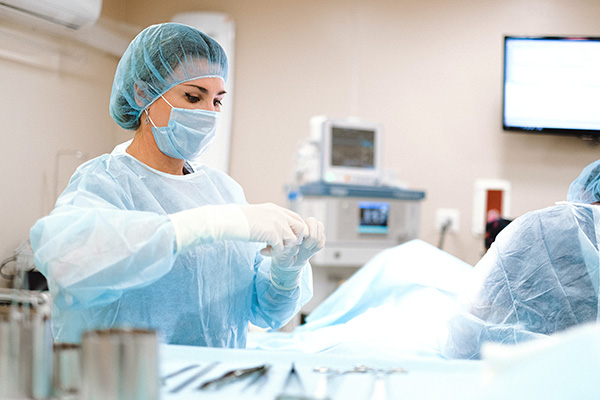
Your Insecurities Could Be Your Golden Ticket To Becoming A CRNA
I would look at it this way. If you need a guarantee that you’re going to be successful to become a CRNA, I would then start investigating what is it that makes you feel like you won’t. Meaning, that says to me that maybe you have some insecurities about your process and where you’re at. That’s okay. We all do. It’s important for you to reflect on what those are because that’s the golden ticket to where you need to work more.
A lot of times when we have these insecurities or doubts, it’s telling you, “This is where you have to put more effort into, even though that is the hardest thing that you’re going to have to do because it’s something that is the most painful for you.” Everyone’s little insecurities are maybe scattered in different aspects of their CRNA application and journey but you got to recognize those little aspects though because that is where the focus needs to go. It’s where you pinpoint those insecurities to be.
It’s not a bad thing to seek out success. You should want to be successful when you do something. I want to encourage you to reflect on why it feels icky if you’re not promised something by doing hard work. That should be a self-reflection point for you to take in, sit in a little bit and understand why. I was also telling the student too that sometimes it’s even swallowing your pride.
I’ve had a lot of students come up to me at this point and I’ve heard them say things such as, “Everything was perfect, Jenny. I don’t understand; I have my GRE and CCRN. I have great ICU experience, leadership roles and GPA. I don’t understand how I could improve. I shouldn’t have gotten rejected but I did. I rocked the interview. I knew everything they asked me. I just don’t understand.”
This is some tough love. I say this in a gentler way but it comes down to this: You probably are still missing something. The fact that you think you’re not missing something is a huge red flag that you are missing something. Usually, it means something about yourself. This is said in the kindest way but was your interview that perfect? Is there such a thing as perfection? No. Even if it’s your perfection, is it their perfection on you?
The fact that you think you're not missing something is a huge red flag that you are missing something. Click To TweetRemember, there is a panel of people who are assessing you and their idea of what they’re looking for did not match. Even if in your mind it matched 100%, that is a big eye-opening moment that maybe you need some self-reflection on how others are viewing you. That’s nothing to feel bad or ashamed about. That’s an opportunity for you to say, “Interesting. I’ve done everything perfectly from my point of view. I thought I did well in the interview but they didn’t pick me. Could there be something that I am displaying to them that is not jiving? Maybe I am not in line with my vocals and tone. What I’m saying and what they’re interpreting isn’t in line with who I am and what they are looking for in a candidate.”
I reflect on this story a lot because she went on to be successful but we had a student who was in a similar situation. They reached out to me and she was baffled that her coworker got in with a lower GPA, lower GRE, less ICU experience and somehow got in. She felt in a way that she felt maybe there was some bias going on or maybe because she wasn’t funny enough and that she wasn’t clever or witty. She couldn’t crack jokes. That’s why she didn’t get in. I said, “It’s probably not it. You have to reach out and get feedback.” When she did, they were very brutal and honest with her and said, “We thought you were too cocky and arrogant. We thought you were too sure of yourself and that you would be hard to teach.”
She was flabbergasted, “That is not me at all. How did that happen?” That’s okay that it happened because now she knows and she can work on that. As she was shocked, she was like, “That is not me.” That’s not what she was signaling. For whatever reason, the environment didn’t create that type of impression. That was time for her to then work on that and she did. She did more mock interviews. She went into a re-interview and got accepted. She was doing great. There’s a happy ending to that story but it did take some tough love, some feedback that hurt a little bit and a way to move forward. I’m sure that happens more than not.
The thing is it doesn’t matter whether you have a 4.0, all the ICU experience or all the certifications. If your interview strikes them such that you are not going to be a successful candidate for whatever reason they are in tune with, they’re not going to pick you. Keep that in mind as you progress into your interview. Assess where you feel like you are. Sometimes the best way to do that is to get insight from others. Ask a close peer and a non-close peer what your weaknesses are. Ask them what they don’t like about you.
That might feel awkward to come up to someone you don’t know that well and you’re going to be like, “I’m looking for some honest feedback because I want to work on myself. I appreciate if you’re as brutal and as honest as you can be. Know that this is a safe place to say it. I’m not going to see you negatively because of whatever you tell me. I would love it if you could tell me what you don’t like about me. What is it about who I am that can bug you sometimes? I would love to know that in the most sacred way because I want to try to work on that.” Also, go to your close peer or best friend and ask the same question.
For the stranger, that might be harder for them to swallow because they’re like, “Do I trust you to tell you this information? Are you going to make my life miserable down the road if I do give you this feedback?” Be careful who you ask. I do think if someone’s not willing to tell you that and who doesn’t know you that well after you introduce it that way, that could also be a signal that maybe you don’t create a safe environment in your communication at work. Maybe you don’t create a belief like, “Truly, this is a safe thing for you to tell me because I want to improve myself.”
That in itself could be very eye-opening if they’re not willing to tell you that information because they don’t feel safe telling you. With that being said, if they tell, great. If they don’t, maybe assess why they’re not and reflect on that for a moment. Go to a close friend and ask the same thing. Take that information and assess what you can do with it. Take it to heart. It might hurt a little bit and it might be like, “That stinks,” but it’s okay. We all have this. We all have reasons why people don’t like us. We’re all human.
The person who told you what they don’t like about you also has something you probably don’t like about them. At the end of the day, we’re all the same. We have likes and dislikes. That’s okay. That’s part of being human. We have flaws but it’s more about recognizing what those flaws are and then creating the discipline and the structure around that to make improvements even if it takes a long time.
Podcast Updates
That sums up this episode. I want to also give you some podcast updates too. I made some updates a few episodes ago. It was probably too soon for me to do the update on having some new voices on the show. I want to give some insight into that because I had some people express some concern that they thought I was leaving the show and they’re like, “I don’t want to see you leave.” I’m very appreciative of that. There are going to be some changes but I’m not leaving the show. I didn’t mean to come across that I’m completely gone. That’s not going to be the case.
I will still be involved in being the guest of the show but it’s going to change a little bit. It may be less frequent. I do foresee me still wanting to bring on a lot of guests on the show and then doing intermittent episodes like this where it’s me riffing off the cuff like I normally do. What I’ve always enjoyed about what I do with CRNA School Prep Academy and with you, the community, the audience, the nurses, the CRNAs and the SRNAs is bringing the community into this. We all have so much to share.
I had to share that story about the student who asked me this question. The only reason why I had this reflection on discipline and what that means is that he asked me that question. I get a lot of value from you and the community. I want to share that with you, the audience, because I want you to equally get that value and experience other people’s viewpoints and insights on what it’s like and what it takes to become a CRNA. If I’m also being perfectly honest, I’d love to say I’m a young buck but not really. I am getting old. I’ve been out of school since 2014. While I know a lot of things are the same, a lot has changed since I went to CRNA school.
I’ve been a CRNA for several years and I love every moment of it but the further I get out from school, I am getting further removed from where you’re about to be. I want to make sure also because I want to hear from current students myself. How I learn is by hearing from them. I want to ensure that you’re hearing from them too and that you feel that connection with the community because that is so strong. The most powerful thing you can get in your life is the community that you surround yourself with, especially when that community has the same heart and passion as you. That is the specialness that I want to bring to the show.
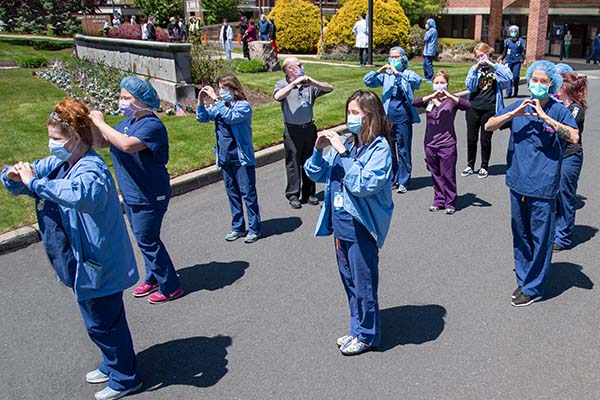
With that, we’re going to have current students on the show more often. Is it going to be the same people all the time? Maybe or maybe not. I don’t know. It depends. This is new. We’re going to go with it, see how it goes and see how it works. I would love your feedback once we do start doing this. We’re going to be talking about things like current topics in clinical that they’re struggling with or that they’re learning. Maybe certain anesthesia concepts that they’re learning. Maybe a “study with me” session. Maybe talking about burnout, stress, eating healthy or relationships from someone who’s currently active in it.
If I had recorded myself back in the day, I have no idea what I would’ve said. I would love to think that I would’ve been insightful but I also think it would’ve been super raw and real. I can reflect on it probably more thoughtfully now than I could have at the time. I would like to think so but I don’t know. At the time I was going through CRNA school, I didn’t have a platform like this. I didn’t speak my voice. I held a lot of it in. I shared it with my classmates and my husband but there would’ve been a lot of value in sharing what I was going through as I was going through it because it would’ve been fresh in my mind.
That’s my hope too. It’s to connect with students who are fresh, are in the thick of it in CRNA school and understand what it is they’re learning and struggling with to give you a very well-rounded picture of what’s in store for you and your journey. Even if it’s not in store for you, it gives you an insight into what are the possibilities. The beauty of insight is you should never live through someone else in a sense. You should never portray or project someone else’s experience onto you because that’s a huge mistake.
The beauty in seeing someone else’s journey or hearing about their experience allows you to possibly avoid certain things for yourself. Meaning, “That’s not what I want to happen to me. That’s very insightful. I wouldn’t do that, but I would do that.” It allows you to reflect on what that means to you in your experience and how can you leverage that information to get further, quicker, better, less stressful and make your journey smoother. That’s the whole point of bringing on a different variety of students to hear from on the show.
I’m not going anywhere. I’m still going to be here. I would never ever leave you, guys. I did get behind on the show because I was traveling and went to another nursing conference in Florida with IntelyCare, which was great. I then went straight to NTI. I have been busy for the last half of the month of May 2023 but we are already into June 2023, which is exciting. If you have any feedback or suggestions for the show, you have suggestions for guests or you want to be a guest in the show, I love to have aspiring CRNAs and current students on the show as well. Don’t ever hesitate to email Hello@CRNASchoolPrepAcademy.com and let me know. Take care and I’ll see you next time. Bye.
Important Links
Get access to planning tools, mock interviews, valuable CRNA Faculty guidance, and mapped-out courses that have been proven to accelerate your CRNA success! Become a member of CRNA School Prep Academy here!
https://www.crnaschoolprepacademy.com/join
Book a mock interview, personal statement critique, resume review and more at https://www.TeachRN.com
Join the CSPA email list here! https://www.cspaedu.com/podcast-email
Send Jenny an email or make a podcast request!
